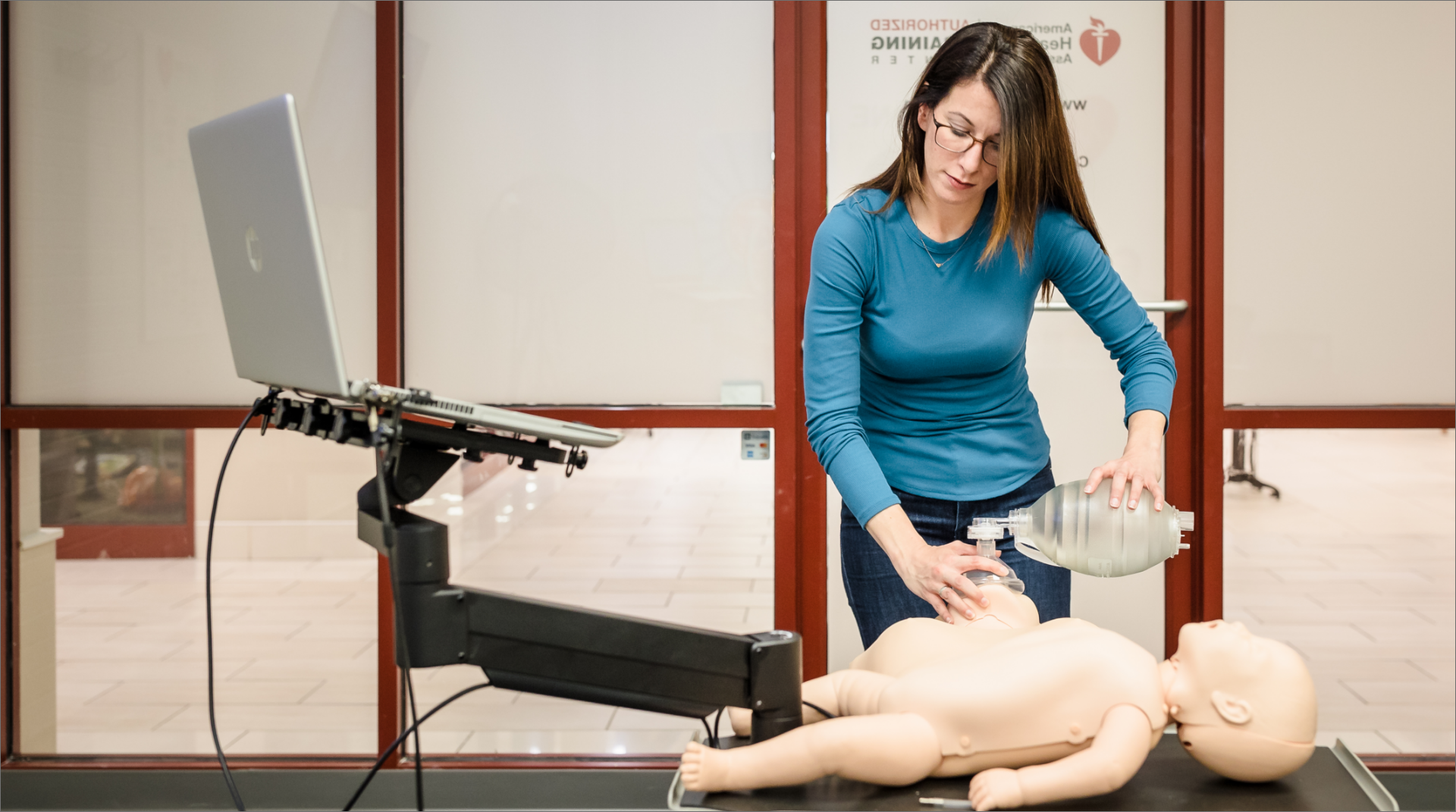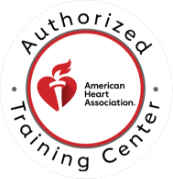

CPR Resource Center
The most comprehensive library of emergency training resources — including videos, articles, downloads, and more.


The most comprehensive library of emergency training resources — including videos, articles, downloads, and more.
Emergency Cardiac Care News Digest is an assortment of current events and news related to emergency cardiac careand resuscitation. Produced by Code One fTraining Solutions, Emergency Cardiac Care News Digest is published every Friday throughout the year.

Things won are done; joy’s soul lies in the doing.
-William Shakespeare
New joint update from the American Heart Association and the American Academy of Pediatrics details latest guidelines for resuscitation following drowning
DALLAS, Nov. 12, 2024 — Updated guidance reaffirms the recommendation for cardiopulmonary resuscitation (CPR) and highlights the importance of compressions with rescue breaths as a first step in responding to cardiac arrest following drowning, according to a new, focused update to Special Circumstances Guidelines from the American Heart Association and the American Academy of Pediatrics. The organizations have previously partnered on neonatal guidelines, however, this is the first collaboration on resuscitation after drowning. The recommendations are published today simultaneously in the flagship, peer-reviewed journals of each organization, Circulation and Pediatrics. The publication in Pediatrics focuses on resuscitation of children following drowning and references pediatric literature, while the publication in Circulation is for resuscitation of both adults and children and includes literature addressing both populations.
Learn more here: https://newsroom.heart.org/news/updated-guidance-reaffirms-cpr-with-breaths-essential-for-cardiac-arrest-following-drowning
The International Advisory Committee on Resuscitation (ILCOR) is dedicated to saving lives globally through resuscitation. ILCOR’s mission is driven by our dedicated Task Forces. These teams of international experts in cardiovascular and emergency care conduct thorough reviews of the latest scientific research, resulting in guidelines and recommendations that shape emergency care practices around the world. Whether in hospitals or non-hospital settings, their work ensures that everyone receives the most effective treatments when it matters most, no matter where they live.
Check out their latest drafts (known as CoSTRs) available for public comment: https://costr.ilcor.org/
Although bystander CPR improves survival for OHCA, there may be a time threshold beyond which bystander CPR may no longer be associated with improved OHCA survival.
Within the Cardiac Arrest Registry to Enhance Survival, researchers identified 198,869 witnessed OHCAs during 2013-2022. Time to initiation of bystander CPR was categorized in 2-minute intervals (0-1, 2-3, 4-5, 6-7, 8-9, 10+ minutes). A multivariable hierarchical logistic regression was used to evaluate the association between each time interval for initiation of bystander CPR, as compared with no bystander CPR, for survival to discharge and favorable neurological survival.
Read more: https://www.ahajournals.org/doi/10.1161/circ.150.suppl_1.Or104
In a study involving nearly 2,400 emergency calls for cardiac arrest in North Carolina, rates for bystander CPR rose dramatically when the 911 operator helped guide the caller.
Without such assistance CPR was performed just 11% of the time for male victims and 9% for female victims, but those rates climbed to 40% and 44%, respectively, when 911 callers got help from operators.
“Prompt delivery of CPR doubles a patient’s chance of survival from out of hospital cardiac arrest,” said study lead author Audrey Blewer, assistant professor of family medicine at Duke University School of Medicine in Durham, N.C.
Source: https://www.upi.com/Health_News/2024/11/11/cpr-911-operator-study/7811731337133/
Out-of-hospital cardiac arrest survival depends on immediate recognition and early cardiopulmonary resuscitation. For victims of unwitnessed cardiac arrest, accounting for 30-50% of cases worldwide, survival chances are dismal as help often comes too late. Automated cardiac arrest detection and alarming would offer a solution to shorten treatment delays. Within the DETECT project, a wristband with the functionality of automated cardiac arrest detection is developed. During the DETECT-1 study, researchers developed a photoplethysmography (PPG) algorithm to detect circulatory arrest in patients with induced circulatory arrest.
Learn more here: https://www.ahajournals.org/doi/10.1161/circ.150.suppl_1.4136643
The City of San Carlos recently installed seven life-saving automated external defibrillators (AEDs) at several city parks throughout the town.
The AEDs are made with life-saving technology that increases the chance of survival when having a cardiac arrest in a public place. The defibrillators are stored in a SaveStation, a climate-controlled external tower that can be monitored 24/7.
AEDs have been located in city buildings for several years, and they were not readily accessible in the case of a public emergency. However, they are now located at several different parks throughout the town, including Arguello Park, Crestview Park, Laureola Park, Burton Park, and Highlands Park. According to a San Carlos news release, the city was the first on the peninsula to provide 24/7 public access to AEDs.
Source: https://scotscoop.com/san-carlos-launches-publicly-accessible-aeds-in-city-parks/
The Community CPR 419 invited people to help save lives by getting certified to do CPR. Held at Bowsher High School, the 4th Annual Community CPR Initiative gives free education to the public on cardiovascular disease, as well as teaching people how to perform CPR. The CDC says more than seven hundred thousand people died from heart disease in 2022. “It’s a key, essential part of life and we want to make sure that the community knows the importance of pushing to save lives, coming together, understanding the skills, the updates and the importance of just actually having that skill set to help someone whenever you need it,” said Tashara B. , founder and president of CPR Initiative 419. A drumline opened the event and more than 30 vendors were there to distribute information.
Ambulance Victoria (AV) paramedics are emphasizing the importance of early intervention for cardiac arrest cases, following a study that found a defibrillator shock from a bystander can vastly improve survivors’ quality of life 12 months on.
The data was released as part of AV’s month-long Shocktober campaign, which highlights the life-saving importance of learning CPR and knowing how to use an automated external defibrillator (AED).
The Victorian study interviewed 1520 out-of-hospital cardiac arrest (OHCA) patients who had a shockable heart rhythm and survived 12 months after cardiac arrest.
Of the participants, about 72 per cent were first shocked by paramedics, about 18 per cent were shocked by first responders and about 10 per cent by bystanders.
Learn about their findings: https://timesnewsgroup.com.au/surfcoasttimes/living/bystander-defibrillations-have-lasting-positive-effects/
Detroit announced in late summer that it is the largest municipality to earn the HEARTSafe Community designation from Citizen CPR Foundation, an achievement in which Wayne State University and the Wayne Mobile Health Unit played an exceptionally pivotal role.
WSU Professor of Emergency Medicine Robert Dunne, M.D., is medical director of the Detroit Fire Department, which has been working to pursue the HEARTSafe Community designation to highlight its ongoing commitment to the cardiac health of Detroiters and to improve survival rates of patients who suffer cardiac arrest citywide. Dr. Dunne also directs the Emergency Medical Services Fellowship.
A medical student learns the proper form for chest compressions during the Class of 2028 orientation.
“Our Emergency Medical Services section of the Department of Emergency Medicine was the WSU lead, but this was a massive team effort,” Dr. Dunne said. “It was all hands-on deck.”
SBS Transit bus captain Jiao Junli went above and beyond his call of duty on Jun 9, 2023.
An elderly woman had passed out at a bus stop and a bystander was performing CPR on her.
The 45-year-old driver stopped the bus and took over until paramedics arrived and took the woman to hospital.
With the latest addition to the buses, Mr Jiao would get extra help in a similar situation.
SBS Transit (SBST) has equipped 53 public buses and three patrol cars with onboard automated external defibrillators (AEDs) sponsored by Singapore Heart Foundation (SHF).
Northwest Texas Healthcare System introduces new, digital resuscitation training and education to help increase cardiac arrest survival
More than 209,000 in-hospital cardiac arrests occur annually in the U.S. with survival rates at about 26% from adult in-hospital cardiac arrest. For decades, the CPR training standard for healthcare providers has been Basic Life Support with a requirement for participants to renew their course completion card every two years; however, studies show CPR skills can decay within three to six months following this training. Northwest Texas Healthcare System (NWTHS) recognizes the importance of high-quality CPR competence and performance to save more lives. According to a news release, in May of 2023, NWTHS, introduced Resuscitation Quality Improvement (RQI), a program co-developed by the American Heart Association and Laerdal Medical, to help clinicians achieve, master and sustain high-quality CPR skills and competence, resulting in improved patient outcomes.
UEFA’s joint campaign with the European Resuscitation Council Get Trained, Save Lives has delivered crucial cardiopulmonary resuscitation (CPR) training to 176,000 people across Europe since being launched a year ago.
Sudden cardiac arrest is the third leading cause of death in Europe, affecting one in 1,000 people every year. In November 2023, UEFA partnered with the ERC to launch the Get Trained, Save Lives campaign, leveraging the passion of football communities and the influence of football greats to raise awareness of sudden cardiac arrest and teach life-saving CPR skills to fans, players, volunteers and staff.
At the ERC annual congress #RESUS24 in Athens last week, attended by over 1,400 resuscitation specialists, UEFA was proud to present the campaign’s first results: to date, 176,000 people have been trained.
Source: https://www.webwire.com/ViewPressRel.asp?aId=329295
The American Heart Association advocates for all 911 dispatchers to be able to give CPR coaching over the phone.
One critical intervention strongly associated with survival is cardiopulmonary resuscitation (CPR) started by a bystander. When CPR begins prior to the arrival of emergency medical services (EMS) personnel, the person in cardiac arrest has a two to three-fold higher likelihood of survival. An effective way to ensure that CPR is provided quickly is for the emergency telecommunicators to provide instant instructions with telecommunicator CPR (T-CPR). T-CPR allows bystander CPR to begin – it works by keeping the brain and heart alive until EMS arrives to provide defibrillation and other vital interventions. T-CPR can assist the untrained caller as well as remind the CPR trained caller how to provide high-quality CPR.
Learn more: https://cpr.heart.org/en/resuscitation-science/telecommunicator-cpr
The Peyton Walker Foundation, is one of the country’s prominent heart screening advocates and leaders in providing CPR and AED training and equipment donations. At The Peyton Walker Foundation they aim to educate parents and students about the prevalence of Sudden Cardiac Arrest (SCA) and the importance of Electrocardiogram (EKG) testing of youth.
Learn more: https://www.peytonwalker.org/
Feel free to email david@code1web.com
Help Me Find a Course